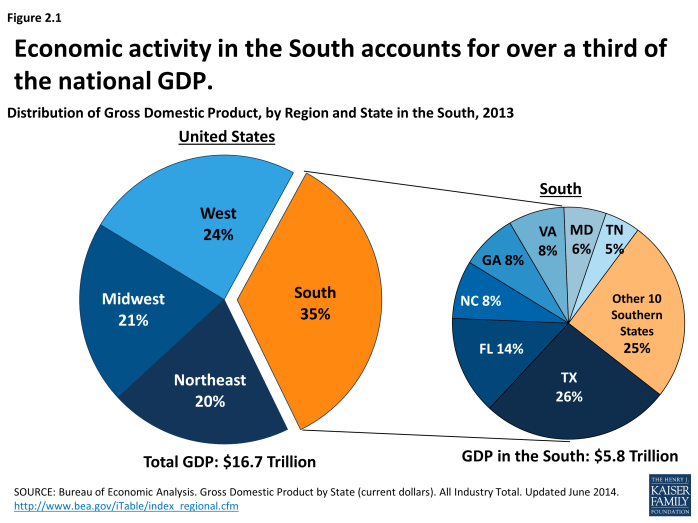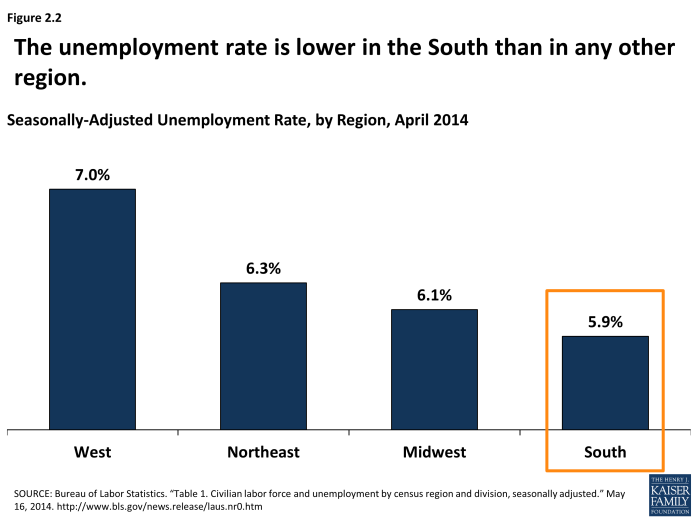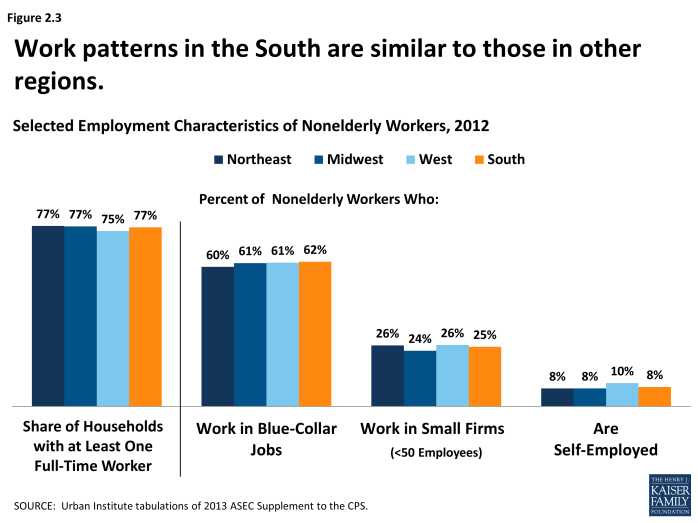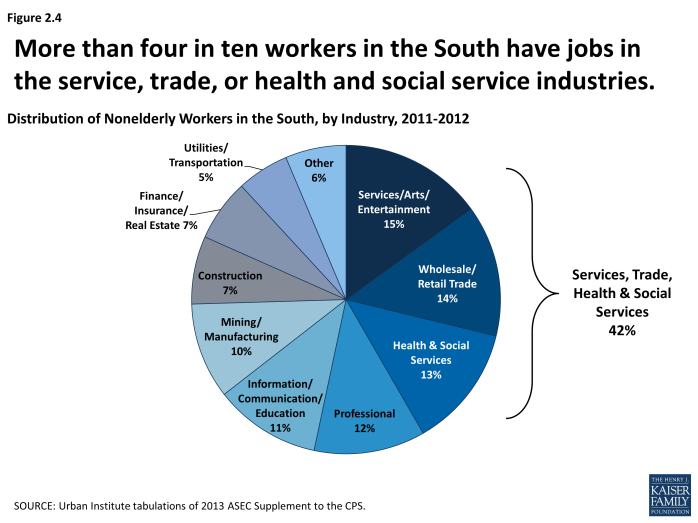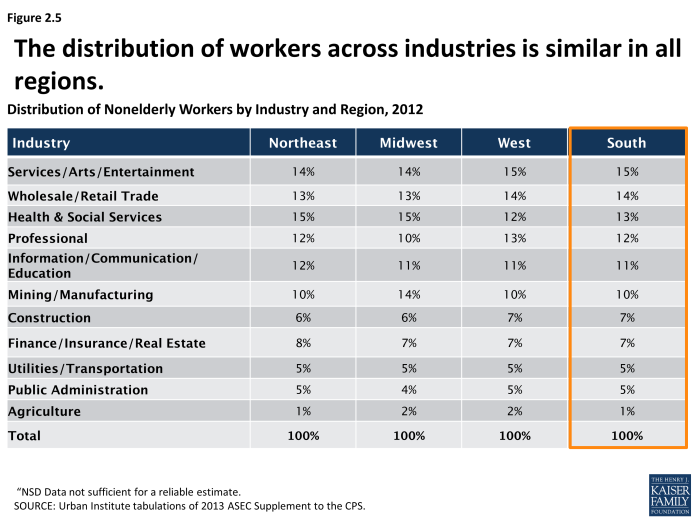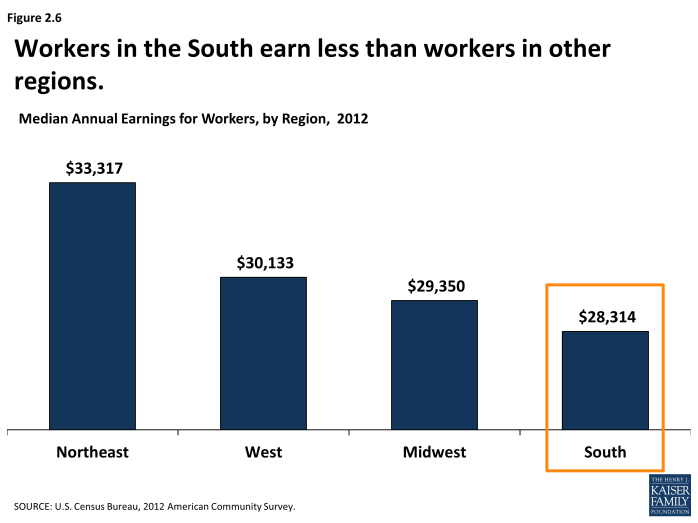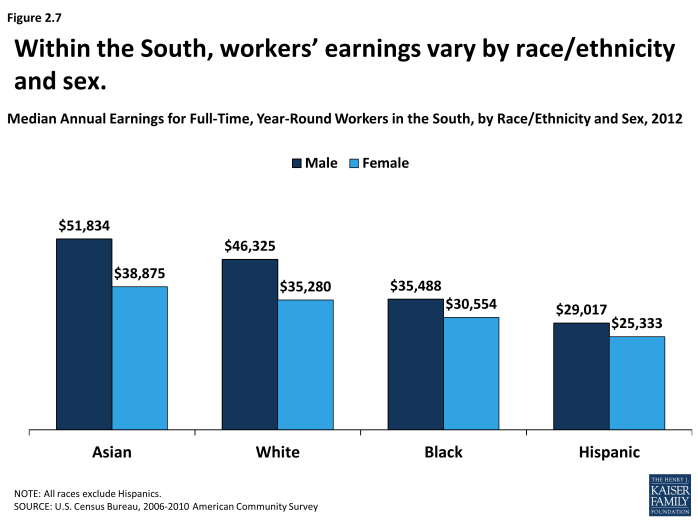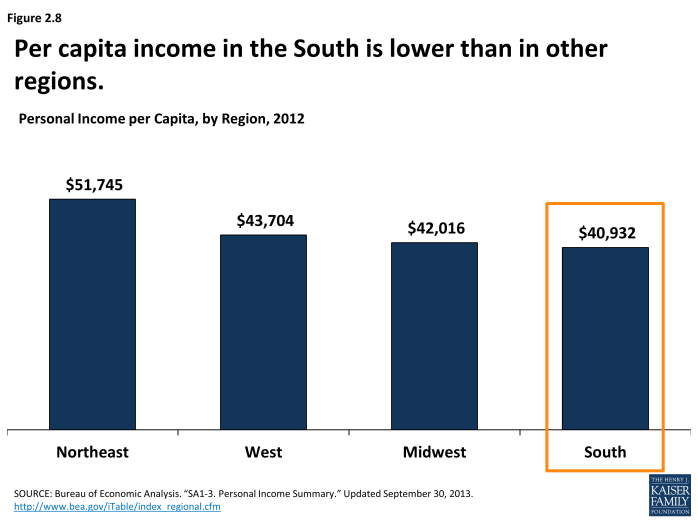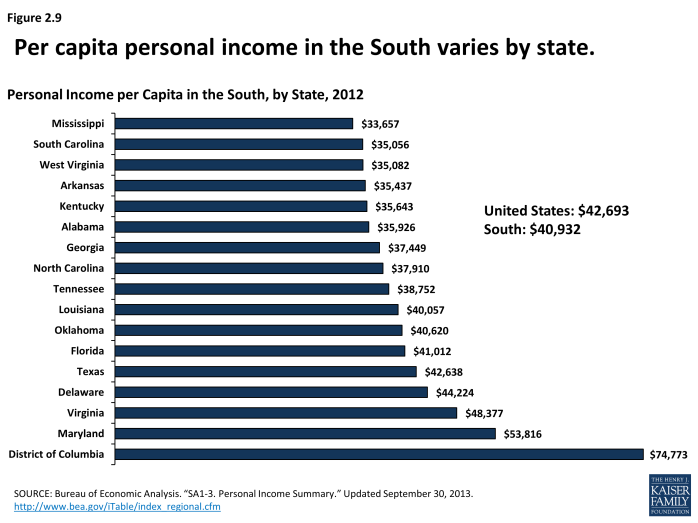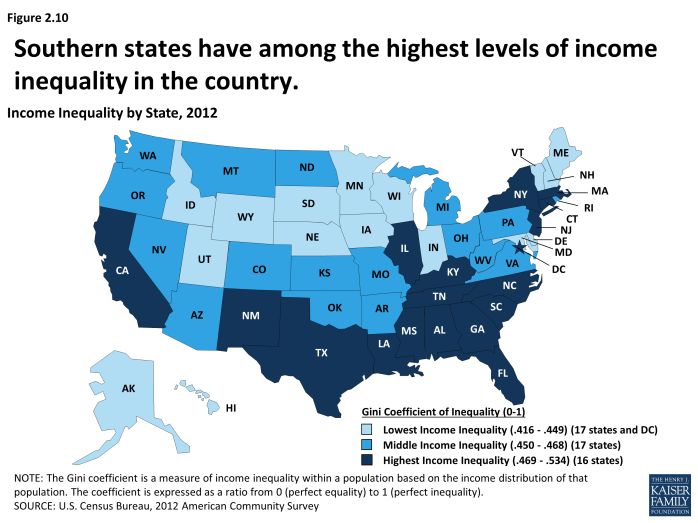Health Coverage and Care in the South: A Chartbook
Section 2: The Southern Economy
The southern states play an important role in the national economy, contributing 35 percent of the total U.S. gross domestic product. Work patterns in the South are similar to those in other regions, although Southerners are less likely than those in other regions to be unemployed. Overall, Southerners earn less per capita than individuals in other regions of the U.S. However, income varies significantly by state, and, in four states, per capita earnings are higher than the national average. Earnings also vary widely within states, and several southern states have among the highest levels of income inequality in the country.


